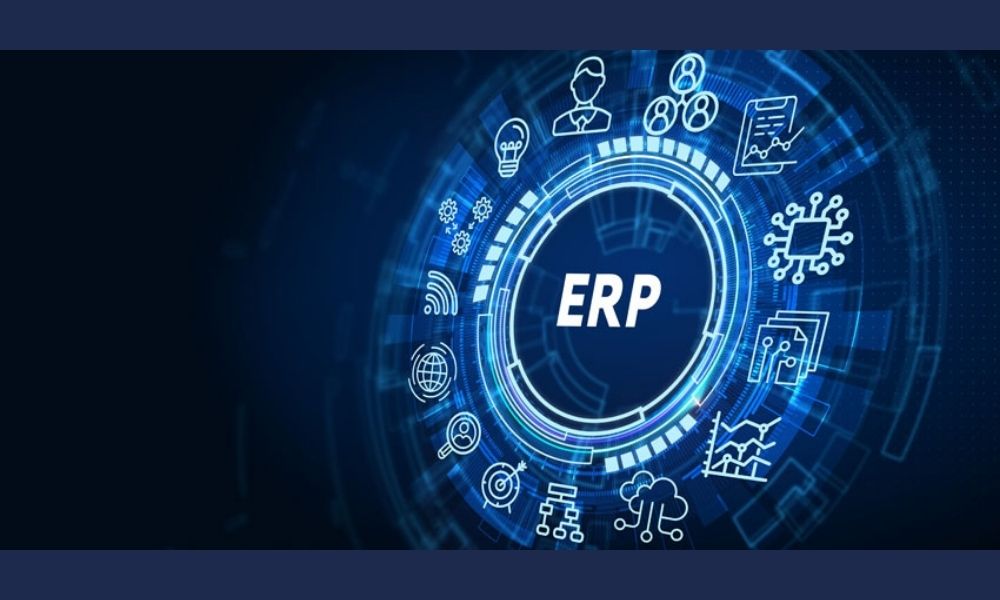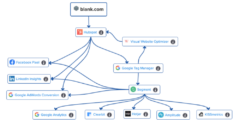Enterprise Resource Planning (ERP) systems have become an essential tool for businesses of all sizes and industries. These integrated software solutions help organizations manage their core business processes, including finance, human resources, supply chain, and customer relationship management. With the increasing complexity of business operations and the need for real-time data, ERP systems have become a necessity for companies looking to stay competitive in today’s fast-paced business landscape.
In this article, we will explore the primary business benefits of an ERP system and how it can help organizations streamline their operations, improve efficiency, and drive growth.
Contents
1. Improved Efficiency and Productivity
One of the most significant benefits of an ERP system is its ability to improve efficiency and productivity within an organization. With all business processes integrated into a single system, employees can access real-time data and information, eliminating the need for manual data entry and reducing the risk of errors. This automation of processes not only saves time but also allows employees to focus on more critical tasks, leading to increased productivity.
For example, a manufacturing company using an ERP system can automate its inventory management process, reducing the time and effort required to track and manage inventory levels. This, in turn, allows employees to focus on other tasks, such as improving production processes or developing new products.
Read:Crypto Exchanges in EU: Alleged Sanctions EvasionMoreover, ERP systems also provide a centralized database, eliminating the need for multiple systems and data silos. This ensures that all employees have access to the same accurate and up-to-date information, reducing the time spent on searching for data and improving overall efficiency.
2. Streamlined Business Processes
ERP systems are designed to streamline business processes by automating and integrating various functions. This integration allows for a seamless flow of information between different departments, eliminating the need for manual data entry and reducing the risk of errors. This not only saves time but also ensures that all departments are working with the same data, leading to better decision-making and improved collaboration.
For instance, a retail company using an ERP system can streamline its sales and inventory processes. When a customer makes a purchase, the system automatically updates the inventory levels, triggering a reorder when necessary. This ensures that the company always has the right amount of stock, reducing the risk of stockouts and lost sales.
Moreover, ERP systems also provide real-time visibility into business processes, allowing managers to track and monitor operations, identify bottlenecks, and make necessary adjustments to improve efficiency. This level of control and visibility is crucial for businesses looking to stay competitive in today’s fast-paced business environment.
Read:Russia Advances Energy Security in Central Asia3. Cost Savings
Implementing an ERP system can also lead to significant cost savings for businesses. By streamlining processes and improving efficiency, organizations can reduce their operational costs, such as labor and inventory costs. Moreover, with real-time data and insights, businesses can make more informed decisions, reducing the risk of costly mistakes.
For example, a healthcare organization using an ERP system can reduce its administrative costs by automating its billing and claims processes. This not only saves time but also reduces the risk of errors, leading to cost savings in the long run.
Additionally, ERP systems also help businesses save on IT costs. With all business processes integrated into a single system, organizations no longer need to invest in multiple software solutions, reducing the cost of maintenance and support. Moreover, cloud-based ERP systems eliminate the need for expensive hardware and infrastructure, making it a cost-effective solution for businesses of all sizes.
4. Enhanced Data Security
Data security is a top concern for businesses, especially with the increasing number of cyber threats. ERP systems offer enhanced data security by providing role-based access control, ensuring that only authorized employees have access to sensitive data. This reduces the risk of data breaches and protects the organization’s confidential information.
Read:What is one benefit to working collaboratively on a team?Moreover, with all data stored in a centralized database, ERP systems also provide data backup and disaster recovery capabilities. This ensures that businesses can quickly recover from any data loss or system failure, minimizing the impact on operations.
5. Improved Decision-Making
ERP systems provide businesses with real-time data and insights, allowing managers to make more informed decisions. With all business processes integrated into a single system, managers can access data from different departments, providing a holistic view of the organization’s operations.
For example, a retail company using an ERP system can access real-time sales data, inventory levels, and customer information, allowing managers to make data-driven decisions about product offerings, pricing, and marketing strategies. This level of visibility and control is crucial for businesses looking to stay ahead of the competition.
Case Study: How Nestlé Improved Efficiency and Productivity with an ERP System
Nestlé, one of the world’s largest food and beverage companies, implemented an ERP system to streamline its operations and improve efficiency. The company’s previous system was fragmented, with different departments using different software solutions, leading to data silos and inefficiencies.
With the implementation of an ERP system, Nestlé was able to integrate all its business processes into a single system, providing real-time data and insights to all employees. This led to improved efficiency and productivity, with employees spending less time on manual data entry and more time on value-added tasks.
Moreover, the centralized database provided by the ERP system allowed for better collaboration and decision-making, leading to improved business outcomes. Nestlé also reported cost savings due to reduced IT costs and improved inventory management.
Conclusion:
In today’s fast-paced business environment, organizations need to stay competitive and agile to succeed. ERP systems provide businesses with the tools they need to streamline processes, improve efficiency, and drive growth. From improved productivity and cost savings to enhanced data security and decision-making, the benefits of an ERP system are undeniable.
As businesses continue to grow and evolve, the need for an integrated and scalable solution like an ERP system will only increase. Organizations that embrace this technology will have a competitive advantage, while those that do not may struggle to keep up with the ever-changing business landscape.
Investing in an ERP system is a significant decision for any organization, and it is crucial to choose the right solution that meets the specific needs and goals of the business. With the right ERP system in place, businesses can streamline their operations, improve efficiency, and drive growth, setting themselves up for long-term success.









